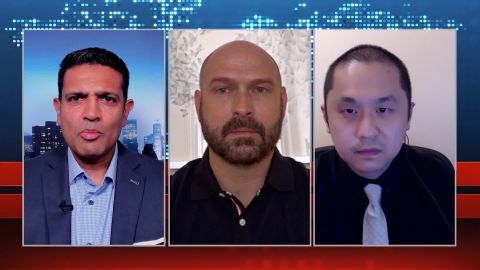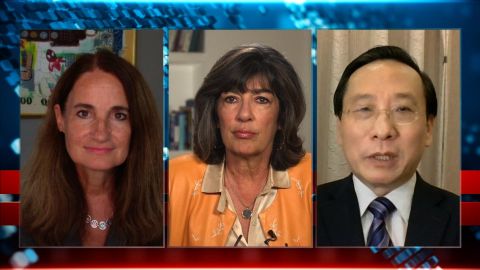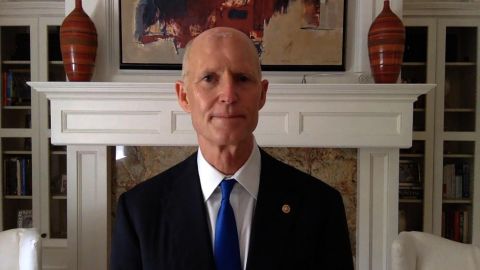Read Transcript EXPAND
VICTOR GAO, VICE PRESIDENT, CENTER FOR CHINA AND GLOBALIZATION: Well, first of all, you’re absolutely right. China-U.S. relations have never been as bad as it is for the last more than four decades, and probably will get even worse in the coming weeks. And this is very sad, because China and the United States are the largest economies in the world. They are the most influential countries in the world. And a lot is at stake involving peace and development. And I would say China-U.S. relations have been poisoned mostly by Washington over the past three years and a half. And there is no reason why China should be viewed as an enemy or the Chinese people are viewed as an enemy. I’m confident about the medium- and longer-term relations between China and the United States. These two countries need to get along with each other. This is the reason why China wants to resume normalcy of relations between the two countries, and I think we need to work hard to achieve this very important goal for the benefit of both the Chinese people and the American people.
CHRISTIANE AMANPOUR: So, let me ask you, Elizabeth Economy. Your latest book is “The Third Revolution: Xi Jinping and the New Chinese State.” And in general, the overall argument that you make is that western democracies, including the United States, haven’t fully yet come to grips with President Xi’s transformation of China. What do you mean by that, and what are the effects and the potential challenges for western democracies?
ELIZABETH ECONOMY, DIRECTOR FOR ASIA STUDIES, COUNCIL ON FOREIGN AFFAIRS: Well, I think — look, the major thing that Xi Jinping has done over the past eight years, almost, since he came to power was really to transform China into a much more repressive and authoritarian system at home and a much more ambitious and expansive country on the global stage. And we can see that in terms of his, you know, consolidation of power into his own hands in a way we haven’t seen since Mao Zedong. His reassertion of the communist party back into the lives of the Chinese people and the Chinese economy, you know, his efforts to sort of contain things within China so it’s much more difficult now for ideas and people to come to China, to get into China through the internet is much more constrained than it was before. And obviously, on the global stage, we’re well past the moment of Deng Xiaoping’s hide brightness, cherish obscurity to Xi Jinping saying that, you know, China wants to lead in the reform of the global government system. And we’ve seen a various sort of China, you know, in areas around the sovereignty, in the South China Sea, Hong Kong and Taiwan, the Belt and Road Initiative, and in effort, I would say, to transform norms on the global stage in issues like human rights and internet governance. So, this is fundamentally a different China than we saw back in 2010-2011.
About This Episode EXPAND
Sen. Rick Scott (R-FL) discusses the Republican National Convention. Elizabeth Economy and Victor Gau discuss President Trump’s relationship with China and President Xi Jinping. A COVID-19 longhauler describes his experience joined by the doctor running Mount Sinai’s Center for Post-COVID Care.
LEARN MORE


